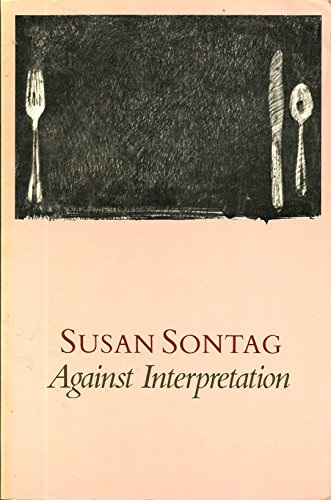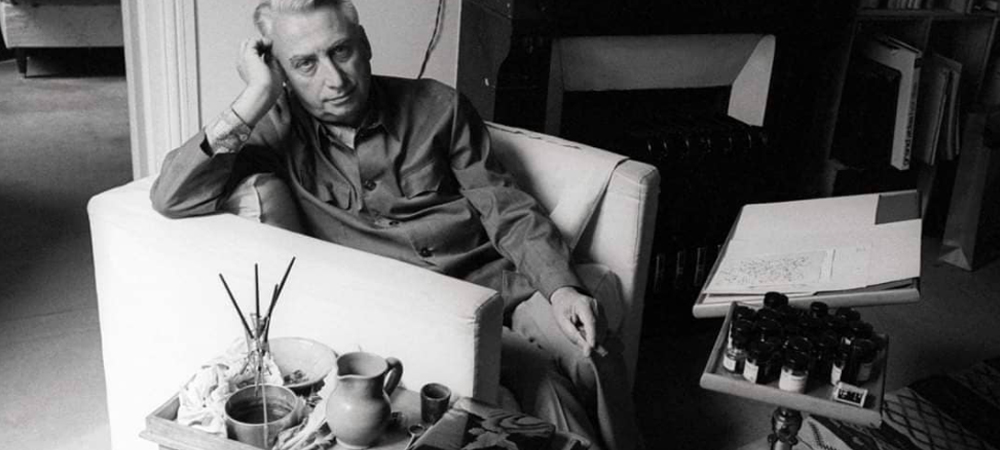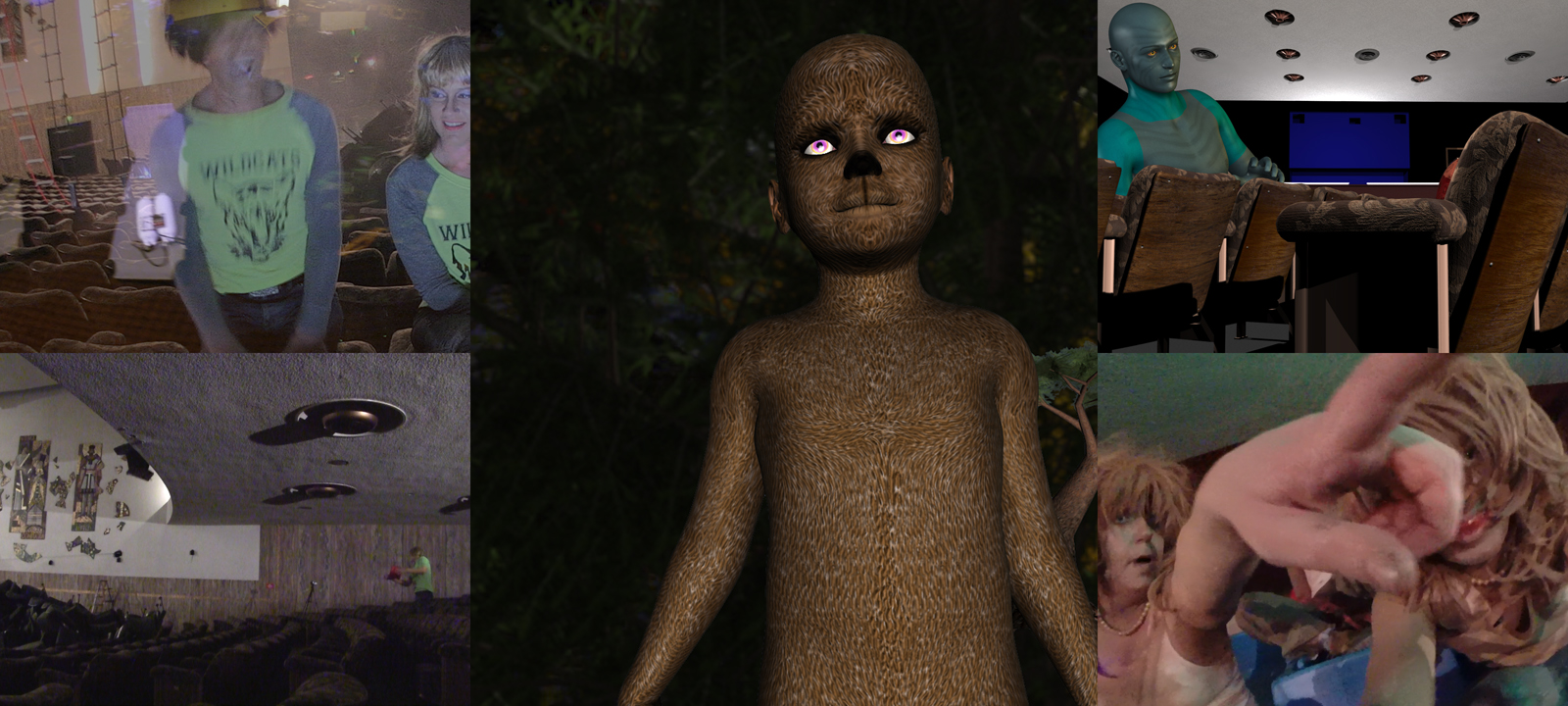Course
Format ︎
Class sessions will be structured around group critiques, reading discussions, and informal presentations and supported studio time.
Critiques
Critiques will be a central part of this learning environment. Each student should be prepared to present visual progress in stages before the final assignment is submitted. You should also be ready to offer constructive criticism to peers, on both concept and form. With the exception of the final- All critiques will be of work in progress.
Readings + Class Discussion
All assigned readings are required. Students are expected to come to class having read the material prior to class and be prepared to participate in discussion.
Exercises + Project Assignments
In the beginning of each section you will be asked to complete short exercises to familiarize yourself with the each new platform we use. The goal is to think of these platforms as materials that we can then use for assignment- not the goal being to learn the platform. The question at hand will be- how can this software help me execute my goal?
These exercises will be completed both in and out of class. I will provide in-person and recorded tutorials on all platforms for more in-depth training. 3 Larger Projects will be assigned throughout the course.
Presentations + Critique
1. Each student will be required to give 1 class presentation on a historical or contemporary designer, artist or studio. These presentations should be 10 minutes long, and showcase visual documentation of their approach.
2. In critique, you will also be evaluated for your presentation or installation format in addition to the work itself. How you document, compile, and share your work with the class should be just as considered as the final design.
Presentations Description ︎
Over the course of the semester, each of you will give a presentation on a contemporary artist, collective, designer or deisgn firm. Your presentations should be 10 minutes. Please either email me the content if you are sharing it digitally or you can bring a thumb drive to class.
Presentations should include
— Brief biography of the Artist, designer or design group
— Historical or cultural context
— Description of their design methodology, process, or approach
— Description of their contributions to the discipline
— Close reading of at least 3 projects/ peices , with a detailed case study of why the work was noteworthy.
— Presentations should be 10 minutes long and presented visually, prepair to lead a 15-20 minute discussion after
-Class participation
Reading discussion 12.5%
Critique 12.5 %
-Project 1 15%
-Project 2 15%
-Project 3 20%
-Exercises 15%
-Presentations 20%
COURSE POLICIES ︎
Attendance
The class is an intensive course that covers a wide territory of technical and conceptual content. Attendance is critical to successful completion of the course. More then three unexcused absenses will result in a letter grade deduction.
Cell Phones/Computer use
Computers and phones are to be used for executing in-class work but not for other tasks.
Project and Exercise Deadlines
All projects and exercises are due on the assigned date. If you are having technical or material difficulties please communicate this to me as early as possible. Late material may not be accepted.
Intellectual Property
Work produced in courses at the Weitzman School of Design is the property of the student. By participating in a course, each student grants the Weitzman School of Design a nonexclusive right and license to use, copy, distribute, display and perform such work in any and all media for educational, programmatic and/or promotional purposes. The School of Design will exercise care with respect to student-created materials submitted in conjunction with a course; however, the School of Design does not assume liability for their loss or damage.² (p. 45 Student Handbook School of Design) Academic Integrity The University Code of Academic Integrity is online at: http://www.upenn.edu/academicintegrity/ai_codeofacademicintegrity.htmli
While there are a wealth of examples of art works that challenge the foundational tenets of authorship, originality, fidelity and authenticity, students should independently familiarize themselves with the Code. Please recognize that the work produced in the course will be considered your own work and thus each artist/student must be prepared to discuss, defend and address their methodologies including any intentional mimicry, reproduction and/or sampling of already existing material.
Individual Accommodation
In compliance with Penn policy and equal access laws, I am available to discuss appropriate academic accommodations that may be required by any students with a disability. Requests for academic accommodations need to be made during the first two weeks of the semester, except under unusual circumstances, to arrange reasonable accommodations. Students must register with Student Disabilities Services (SDS) for disability verification and for determination of reasonable academic accommodations. If something comes up during the semester, reach out to me for a time to meet and we can find a solution together.
Office Hours
Tuesdays 9-6, or upon request. Email to set up a time 2 days in advance minimum.
Class sessions will be structured around group critiques, reading discussions, and informal presentations and supported studio time.
Critiques
Critiques will be a central part of this learning environment. Each student should be prepared to present visual progress in stages before the final assignment is submitted. You should also be ready to offer constructive criticism to peers, on both concept and form. With the exception of the final- All critiques will be of work in progress.
Readings + Class Discussion
All assigned readings are required. Students are expected to come to class having read the material prior to class and be prepared to participate in discussion.
Exercises + Project Assignments
In the beginning of each section you will be asked to complete short exercises to familiarize yourself with the each new platform we use. The goal is to think of these platforms as materials that we can then use for assignment- not the goal being to learn the platform. The question at hand will be- how can this software help me execute my goal?
These exercises will be completed both in and out of class. I will provide in-person and recorded tutorials on all platforms for more in-depth training. 3 Larger Projects will be assigned throughout the course.
Presentations + Critique
1. Each student will be required to give 1 class presentation on a historical or contemporary designer, artist or studio. These presentations should be 10 minutes long, and showcase visual documentation of their approach.
2. In critique, you will also be evaluated for your presentation or installation format in addition to the work itself. How you document, compile, and share your work with the class should be just as considered as the final design.
Presentations Description ︎
Over the course of the semester, each of you will give a presentation on a contemporary artist, collective, designer or deisgn firm. Your presentations should be 10 minutes. Please either email me the content if you are sharing it digitally or you can bring a thumb drive to class.
Presentations should include
— Brief biography of the Artist, designer or design group
— Historical or cultural context
— Description of their design methodology, process, or approach
— Description of their contributions to the discipline
— Close reading of at least 3 projects/ peices , with a detailed case study of why the work was noteworthy.
— Presentations should be 10 minutes long and presented visually, prepair to lead a 15-20 minute discussion after
Final Grade ︎
-Class participation
Reading discussion 12.5%
Critique 12.5 %
-Project 1 15%
-Project 2 15%
-Project 3 20%
-Exercises 15%
-Presentations 20%
COURSE POLICIES ︎
Attendance
The class is an intensive course that covers a wide territory of technical and conceptual content. Attendance is critical to successful completion of the course. More then three unexcused absenses will result in a letter grade deduction.
Cell Phones/Computer use
Computers and phones are to be used for executing in-class work but not for other tasks.
Project and Exercise Deadlines
All projects and exercises are due on the assigned date. If you are having technical or material difficulties please communicate this to me as early as possible. Late material may not be accepted.
Intellectual Property
Work produced in courses at the Weitzman School of Design is the property of the student. By participating in a course, each student grants the Weitzman School of Design a nonexclusive right and license to use, copy, distribute, display and perform such work in any and all media for educational, programmatic and/or promotional purposes. The School of Design will exercise care with respect to student-created materials submitted in conjunction with a course; however, the School of Design does not assume liability for their loss or damage.² (p. 45 Student Handbook School of Design) Academic Integrity The University Code of Academic Integrity is online at: http://www.upenn.edu/academicintegrity/ai_codeofacademicintegrity.htmli
While there are a wealth of examples of art works that challenge the foundational tenets of authorship, originality, fidelity and authenticity, students should independently familiarize themselves with the Code. Please recognize that the work produced in the course will be considered your own work and thus each artist/student must be prepared to discuss, defend and address their methodologies including any intentional mimicry, reproduction and/or sampling of already existing material.
Individual Accommodation
In compliance with Penn policy and equal access laws, I am available to discuss appropriate academic accommodations that may be required by any students with a disability. Requests for academic accommodations need to be made during the first two weeks of the semester, except under unusual circumstances, to arrange reasonable accommodations. Students must register with Student Disabilities Services (SDS) for disability verification and for determination of reasonable academic accommodations. If something comes up during the semester, reach out to me for a time to meet and we can find a solution together.
Office Hours
Tuesdays 9-6, or upon request. Email to set up a time 2 days in advance minimum.
Week 3 Composition and Form
o Monday , January 27th
CLASS CANCLED
o Wednesday, January 29th
Discussion of readings:
Charles Eames interview, What is Design ? or listen below via youtube
Marjannevan Helvert(ed.)- The Responsible Object: A History of Design Ideology for the Future p. 11-22 & A Political EducationThe Historical Legacy of the German Bauhaus and the Moscow VKhUTEMASÉva Forgács. 49-65
Adobe Photoshop Demo + Exercises
https://bezier.method.ac/

Introduce First assignment
Studio time
First round of exercises due by end of class
Submit HERE
Week 4 Composition and Form
o Monday, February 3rd
Discussion of reading:
Siane Ngai- Zany, Cute, Interesting: Our Aesthetic Categories (Introduction only)

Studio time
First round of exercises due by end of class
o Wednesday, February 5th
Studio time
ICA Lecture Series
Thursday February 6th 6:00 PM
Leslie Thornton, ICA Philadelphia
Week 5 Composition and Form
o Monday, February 10th
Discussion of readings:
Marjanne van Helvert-Counterculture and Anti-Design Postmodern Appropriations of Utopia
Ece Canlı- Design History InterruptedA Queer-Feminist Perspective p. 163 -207.
Studio time
o Wednesday, February 12th
Liz Lerman’s Critcal Response Practice
Work in Progress Group Critique: Post progress of project before class
Week 5 Digital Image making: within a frame
o Monday, February 17th
Assignment #1 due before class
Discussion of readings:

Susan Sontag, Against Interpration
A.L. Stiner
Kameelah Janan Rasheed
Carolyn LazardRose Salane
Introduction to Figma, Demo + exercises
o Wednesday, February 19th
No in person class!
Use the link below for our 1:1 meeting
https://upenn.zoom.us/j/5052070332
Week 6 Image Making
o Monday, February 24th
Meeting on Zoom
https://upenn.zoom.us/j/5052070332



Roland Barthes, The Rhetoric of the Image
Introduce second assignment
o Wednesday, February 26th
First round of presentations
Marcus
Sage
Studio time
Week 7 Image Making
o Monday, March 3rd
Second Round of Presenations
Chloe
Badia
Aorelia
Studio time
Complete Figma exercises by end of class
o Wednesday, March 5th
Studio time
ICA Lecture Series
Thursday March6th 6:00 PM
Black Mass, ICA Philadelpha
Week 8
NO CLASS
Spring Break
Week 9 Image Making
o Monday, March 17th
Group Critique: Post in progress assignment before class
o Wednesday, March 19th
Studio time
Week 9 Moving Image and Choreography: Communicating with Time, Motion, and Sound
o Monday, March 24th
Assignment #2 Due before class
Workshop (guest lecture)
Discussion of readings/Lectures
Ways of Seeing, John Berger
ch 2, 3 + 7
Ways of Seeing, BBC
o Wednesday, March 26th

Reading:
Glitch Feminism
https://vimeo.com/616227244
https://www.youtube.com/watch?v=Y6ccyXBYjhk&t=44s

Screenings:
Nancy Holt Boomarang
Martha Rosler - Semiotics of the Kitchen
Cheryl Donegan, Head
Chris Burden TV commercials 1973
Big Wrench
Alex da Corte, chelsea hotel
Jasper Jus, Bliss and Heaven
Sondra Perry
Martine Syms,
Lessons I-XXI
Emily Allan & Leah Hennessey, Steps of DestructionRyan Trecartin
Hito Steyerl, How to not be seen anywhere
Arthur Jafa, Love is the Message and the Message is Death
Week 10 Moving Image and Choreography
o Monday, March 31st
Third Round of Presentations:
Mary
Emma
Erin
Introduction to Adobe Premier and Demo + exercises
Studio time

o Wednesday, April 2rd
Introduce 3rd assignment
Studio time
Week 11 Moving Image and Choreography
o Monday, April 7th
Fifth Round of Presentations
Zhigiang
Lillie
Discussion of Readings:
Art Forum: Video Art in and Around the Contemporary
Video lnstallation Art:The Body, the lmage, and the Space-in-Between

Studio time
Exercises due by the end of class
o Wednesday, April 9th
Practices of Looking introduction + Ch.3
Studio time
Week 12 Moving Image and Choreography
o Monday, April 14th
Discussion of Readings
Practices of Looking introduction + Ch.3
Studio Time
o Wednesday, April 16th
Studio Time
Week 13 Moving Image and Choreography
o Monday, April 21st
Practices of Looking 2+6
Studio Time
o Wednesday, April 23rd
https://forensic-architecture.org
Studio Day
Week 14 Reviews + Wrap Up
o Monday, April 28th
Final Crit Day Pt.1
o Wednesday, April 30th
Final Crit Day Pt. 2
Group discussion and goodbyes ︎︎︎︎︎